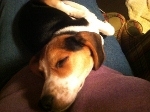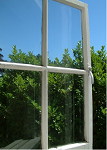I will NOT sign anything 'til I run it this forum. This is a very helpful place.mayondair wrote: Also, don't be afraid to run anything by the forum, just don't sign on the bottom line or take home a machine until you are sure. And it's a good idea to verify model numbers on machines, some DMEs have been known to be dishonest or uninformed.
So, see your doc, ask questions, get your RX, crunch some numbers , and shop around. You can also just get masks from a local DME , easier to try on that way, and machine elsewhere. We're here to help! Kathy
Questions to ask the Dr. after a sleep study?
Re: Questions to ask the Dr. after a sleep study?
Re: Questions to ask the Dr. after a sleep study?
Will do gertrude. Thanks.gertrude wrote:" . . . to understand the terms, read it with the definitions on this site by your side."
Re: Questions to ask the Dr. after a sleep study?
Thanks ChiGranny.ChicagoGranny wrote:Some great, detailed resources have been posted. Thanks.
Here is a short, simple list of questions I found on cpaptalk:
Questions to ask about your PSG and Titration Study
wiki/index.php/Sleep_study
- MelindaJoan
- Posts: 18
- Joined: Thu Jul 05, 2012 7:51 am
Re: Questions to ask the Dr. after a sleep study?
Great post. I've had my sleep study, the titration study, and have copies of the results but still have not met with my doctor. That appt is in September. In the meantime, I'm doing tons of reading, have started on "the machine," have a neurologist's appt on Monday which brings me to my question to you.
You mentioned your sleep doctor indicated a correlation between sleep apnea and Parkinson's. I thought the correlation was between REM Behavior Disorder and Parkinson's (and you mentioned REM Disorder in your potential questions.) Based on my initial interview with the sleep doctor and sleep "events" he wanted me to see a neurologist to "rule out" other factors. He felt that REM Behavior Disorder was a strong possibility for me. However, in my sleep study results, all I see are a lot of limb movements, his brief commentary regarding that, but nothing to indicate any notable REM event (like punching the pillow vs. a few leg movements ) in the scoring or the narrative. I'm cynical enough to think that maybe I don't have the whole report, either.
Do you have a copy of your study results and was there an indication of REM disorder? There's not an awful lot of info out there and I'm trying to learn as much as I can before I go to the neurologist on Monday. Clearly, that is a concern for you as well.
You mentioned your sleep doctor indicated a correlation between sleep apnea and Parkinson's. I thought the correlation was between REM Behavior Disorder and Parkinson's (and you mentioned REM Disorder in your potential questions.) Based on my initial interview with the sleep doctor and sleep "events" he wanted me to see a neurologist to "rule out" other factors. He felt that REM Behavior Disorder was a strong possibility for me. However, in my sleep study results, all I see are a lot of limb movements, his brief commentary regarding that, but nothing to indicate any notable REM event (like punching the pillow vs. a few leg movements ) in the scoring or the narrative. I'm cynical enough to think that maybe I don't have the whole report, either.
Do you have a copy of your study results and was there an indication of REM disorder? There's not an awful lot of info out there and I'm trying to learn as much as I can before I go to the neurologist on Monday. Clearly, that is a concern for you as well.
_________________
| Mask: Swift™ FX For Her Nasal Pillow CPAP Mask with Headgear |
| Humidifier: S9™ Series H5i™ Heated Humidifier with Climate Control |
Re: Questions to ask the Dr. after a sleep study?
Welcome, pilipo!
You are wise to prepare questions in advance. Time is very limited at these appointments and you will want to hit the ground running.
I second (or third!) the opinions about getting 1) a data-capable machine and 2) copies of your PSG and titration studies. Even if you don't understand everything about them now, as you go along, you'll want all the info handy.
I would add that you have 30 days to exchange your mask free of charge. You may do so as many times as is necessary. At first you may want to tweak your mask fit. The name of the game is to have it be as comfortable as possible without leaking. But if tweaking does not achieve desired results, you will want to try a different mask. You have 3 months to reach compliance, and for many people adapting to the mask is the biggest challenge to that. Don't be afraid to persist and persist and persist about the mask in those first 30 days. Give a mask a week; if it still is not doing it for you, switch it out.
During the fitting, try to replicate how you actually sleep. Does your test reveal that your apnea was worse in a certain position? If you sleep with your mouth open, do you have to do so because of your facial structure? What does the doctor recommend for your maximum pressure? Try to replicate these conditions during the fitting. I didn't get a good fitting for a mask until month 7, when I requested of the sleep specialist that I try the masks on a) while on my back, b) with the mask liner, c) with my mouth open, and d) at my maximum pressure. For my first mask, she (and the DME) had me sitting up, with my mouth closed, and at less than my maximum pressure—instead of how I actually sleep! To do the fitting the way I wanted, she had to clear all her papers off the bed in her consulting room—I had told her I'd be willing to do it on the floor, if necessary! Be friendly—and persistent.
Good luck!
You are wise to prepare questions in advance. Time is very limited at these appointments and you will want to hit the ground running.
I second (or third!) the opinions about getting 1) a data-capable machine and 2) copies of your PSG and titration studies. Even if you don't understand everything about them now, as you go along, you'll want all the info handy.
I would add that you have 30 days to exchange your mask free of charge. You may do so as many times as is necessary. At first you may want to tweak your mask fit. The name of the game is to have it be as comfortable as possible without leaking. But if tweaking does not achieve desired results, you will want to try a different mask. You have 3 months to reach compliance, and for many people adapting to the mask is the biggest challenge to that. Don't be afraid to persist and persist and persist about the mask in those first 30 days. Give a mask a week; if it still is not doing it for you, switch it out.
During the fitting, try to replicate how you actually sleep. Does your test reveal that your apnea was worse in a certain position? If you sleep with your mouth open, do you have to do so because of your facial structure? What does the doctor recommend for your maximum pressure? Try to replicate these conditions during the fitting. I didn't get a good fitting for a mask until month 7, when I requested of the sleep specialist that I try the masks on a) while on my back, b) with the mask liner, c) with my mouth open, and d) at my maximum pressure. For my first mask, she (and the DME) had me sitting up, with my mouth closed, and at less than my maximum pressure—instead of how I actually sleep! To do the fitting the way I wanted, she had to clear all her papers off the bed in her consulting room—I had told her I'd be willing to do it on the floor, if necessary! Be friendly—and persistent.
Good luck!
Epworth Sleepiness Scale: 14
Diagnostic study: overall AHI: 0.2 events/hour; overall RDI: 45 events/hour
Titration study: AHI: 6.1; RDI: 27; CPAP pressures: 5-8cm
Not-tired behind my eyes and with a clear, cool head!
Diagnostic study: overall AHI: 0.2 events/hour; overall RDI: 45 events/hour
Titration study: AHI: 6.1; RDI: 27; CPAP pressures: 5-8cm
Not-tired behind my eyes and with a clear, cool head!









